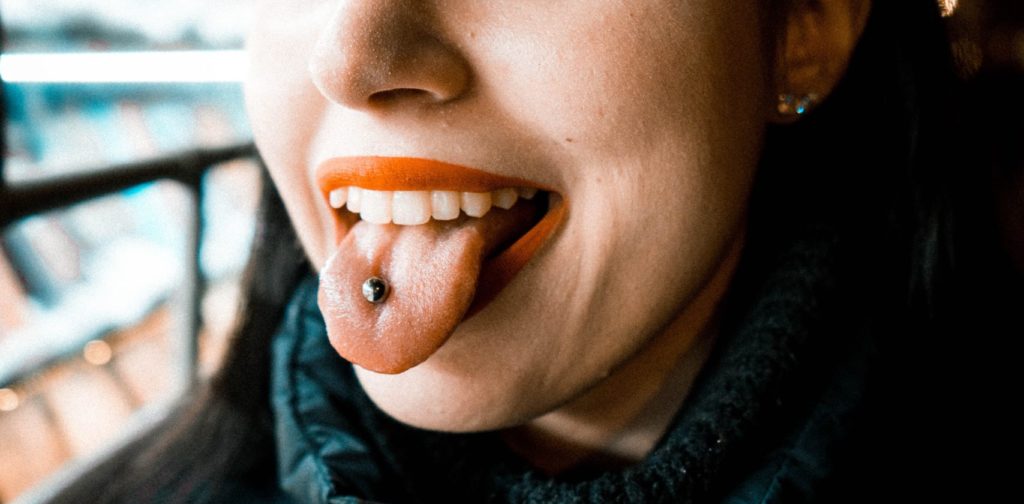Oral Piercings and Oral Hygiene

What is Oral Piercing?
Oral piercing involves a needle being passed through the tongue, lips or cheeks to create a hole for inserting jewellery such as studs, rings or barbells. Piercing is usually performed without anaesthetic
What are the complications of Oral piercing?
Complications can occur immediately after the piercing or in the longer term.
Post-piercing complications:
Infection can occur, especially if stringent infection control and sterilization procedures are not followed.
Swelling of the tongue can be expected after piercing. In severe cases, the swelling can obstruct the airway and cause severe breathing difficulties.
Slight bleeding is to be expected. Excessive bleeding can occur if major blood vessels are punctured during the piercing.
Pain should be expected post-piercing.
Longer-term complications:
- Teeth can be chipped, cracked or fractured due to being continually bumped with the jewellery, especially with barbells in the tongue. Microscopic cracks in the teeth caused by piercing jewellery are extremely painful. These cracks are difficult to treat and often result in the loss of teeth.
- Gums and inside cheek tissue can experience trauma due to constant rubbing against the gum by the piercing jewellery, particularly with lip (‘la bret’) piercing.
- Oral piercing can interfere with chewing and speaking. Nerve damage caused by an incorrect piercing can cause a loss of taste and/or speech impediments.
- Nerve damage due to an incorrect piercing technique can cause facial numbness and/or paralysis.
- There is a risk of infection due to foreign debris and bacteria accumulating in the pierced site.
- There is a risk of contracting blood-borne diseases such as hepatitis and HIV if contaminated piercing equipment is used.
- Hypersensitivity to the metals used in piercing jewellery may be experienced.
- Ongoing swelling and pain may be experienced.
- How can I minimize the chance of complications?
Even without complications, healing after oral piercing takes 4-6 weeks.
You can minimize the chance of complications by following these tips:
- Ensure the person performing the piercing is experienced, is aware of your oral anatomy and uses strict infection control and sterilization practices
- Gently suck on ice to reduce the risk of tongue swelling due to bleeding
- Seek immediate medical advice if excessive bleeding, swelling or pain occurs following a piercing
- If infection occurs, seek urgent medical advice
Once the piercing is in place, visit a dental professional every 6 months so the piercing and any potential damage can be monitored.
Make sure the size and position of jewellery does not damage teeth and gums. It is preferable to wear good quality plastic jewellery rather than metallic jewellery
To prevent damage to teeth and gums, remove jewellery before participating in sport and before sleeping.